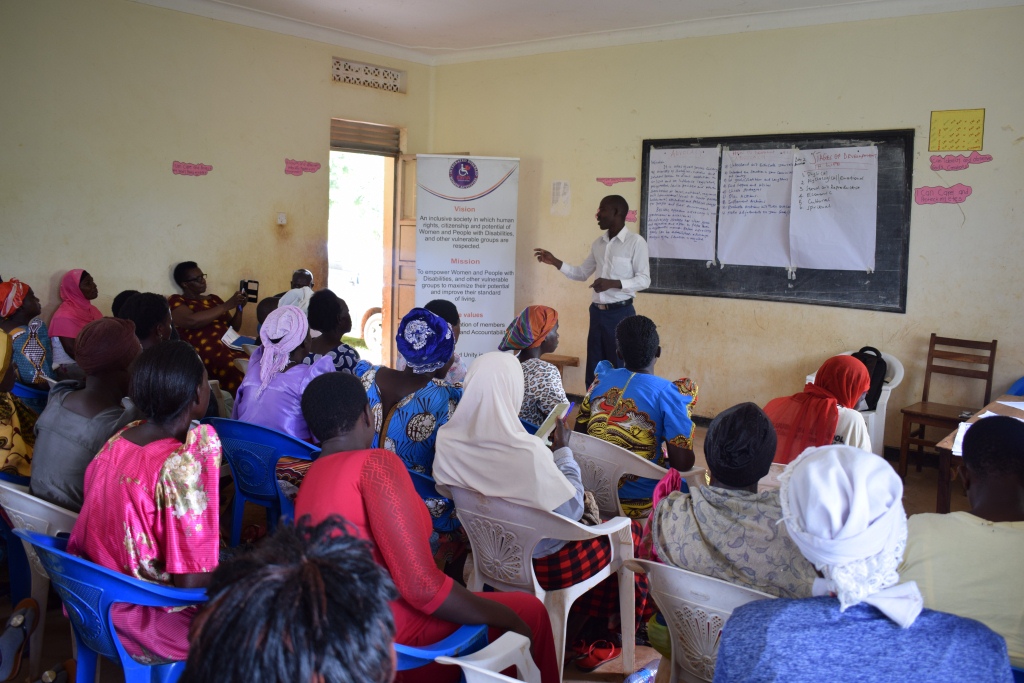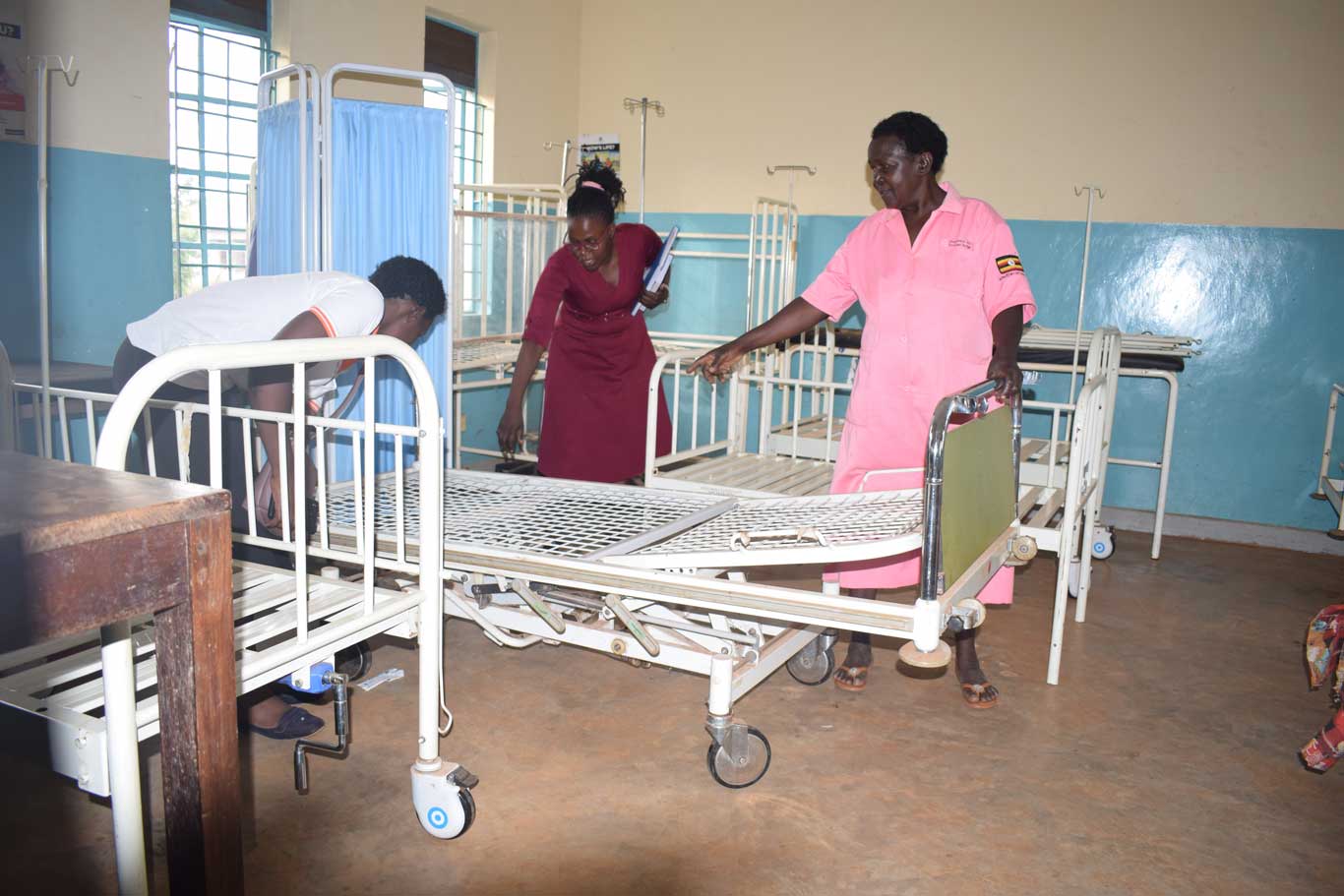The belief that women with disabilities are inherently unfit to become mothers has changed over time been changing but not fully with some community members under minding women with disabilities as mothers. “Today, women with disabilities contend with coercive tactics designed to encourage sterilization or abortions because they are deemed not fit for motherhood.” As an advocate for disabled women, I have seen doctors get shocked When WGDs tell doctors that they are planning to become mother someday. Although no doctor has outright told them not to have children, most doctors think they shouldn’t. Women with disabilities are also presumed sexually unwilling or unable and often do not receive quality reproductive health care information or services. People with disabilities, especially people with intellectual disabilities, are often not provided meaningful sex education. These disparities have notable consequences: Rates of HIV and other sexually transmitted diseases are high among adults with disabilities. This discrimination does not stop if a woman with a disability chooses to have children. In fact, in many ways, it actually increases. Parents with disabilities experience significant discrimination, particularly within the child welfare, family setting and community socialization. Based on prejudiced and antiquated policies that presume unfitness, parents with disabilities are much more likely to be referred to the child welfare system and to have their children removed from their homes. Likewise, parents with disabilities often are denied custody or visitation of their children more so those with mental disabilities. Parents with disabilities experience significant discrimination within the child welfare and family law systems. Take the example of Sara Gordon, a mother who had her child taken by the Massachusetts Department of Children and Families two days after giving birth. The reason? She missed a feeding. Oh, and she has an intellectual disability. Rather than giving this family a chance, the state just assumed she was incapable. Sara’s fight to regain custody endured for over two years and ended with the federal government intervening on her behalf. Unfortunately, Sara’s experience is neither unique or uncommon. Indeed, many parents with disabilities will tell you that they live each day in fear that they will have their child taken by the state. The discrimination parents with disabilities face is frightening to our communities. If both my partners have disabilities, they fear the likely bias they will experience as they navigate parenthood in the future. We know that as an attorney with resources and a strong understanding of PWD rights, we have immense privilege. What happens to the many disabled parents who are less fortunate? Despite the many advances in disability rights, society still refuses to see PWDs and other vulnerable people as capable parents. Rather than seeing people with them as able to provide care, PWDs and other vulnerable groups are too often assumed to simply be the recipients of care. They are viewed as dependents, in need of protection, and incompetent, rather than capable, strong, and nurturing. These negative perceptions are wrapped up in damaging expectations of mothers in general. Mothers are expected to know from day one everything their child needs and how to provide it, and they are often expected to take on the majority of parenting responsibilities and to be happy about it. At the same time, they are asked to be selfless at all times. In sum, mothers are expected to be perfect. But the truth is, disability or not, no mother is perfect — and that’s perfectly okay. As we celebrate Mother’s Day, we must remember that motherhood transcends race, ethnicity, religion, sexual orientation, socioeconomic class, and ability. Not all women with disabilities want to be mothers, of course; the problem is denying them this incredibly personal choice. At IDIWA, we are fortunate to know so many mothers with disabilities who are absolute role models in communities. Each day, they live in a world that presumes they are unfit and less than. We know, someday you will be a mother or a father — and while we may not be able to throw a ball or lift your child over our heads, we know you can absolutely love and nourish them. We will always need to rely on others for help with personal care, but that in no way diminishes your capacity to provide a safe and happy home. No matter what society says, we know you will be a great mother. Not perfect, because no mother is, But great. Happy mothers’ day to you all
IDIWA SGBV Program kicks off with Human Rights and Advocacy Skills Training for Women and Girls with Disabilities to promote equitable access to disability-friendly multisectoral services for survivors of sexual and gender-based violence and empowering women and girls with disabilities to demand their rights
The feeling of being Equal to others is still a big puzzle for Women and Girls with Disabilities -WGDs. This is mainly due a number of challenges they face on a daily basis, including negative attitudes, discrimination, isolation and exclusion from family and community activities, all of which tantamount to abuse and violation of human rights. IDIWA is constantly looking at innovative and creativity to be able to support her members in a changing environment. IDIWA is currently training WGDs in Human rights and advocacy to enhance their understanding and appreciation of their rights, and how to individually and collectively use them to demand for protection. WGDs demonstrated learning by sharing their life stories and intersecting disability and disparities, in relation to the legal frameworks and SGBV services during the training. The beginning was tough; WGDs confessed “we have been ignorant of various forms of violence, how to handle and where to report cases. We now have the confidence to what we go through every day. We had been forced to think that nothing can be done in the face of abuse, inhuman and degrading treatment of WGD; we resorted to working and taking care of our children. Our spouses do not want to identify with us in public, and deny responsibility of fathering children with us. Our parents deny us the right to inherit land just like our siblings; we don’t own what we produce because we the land belongs to family members and spouses……….. WGDs lamented as they shared life stories. It was a touching moment, with a sense of guilt. They should have fought for their rights, only if they had the information they had just received. The human rights and advocacy training came with a ray of hope. WGDs for the first time felt energized to go out and demand for services from duty bearers. They were encouraged them to build strong relationships and understanding with duty bearers in their advocacy efforts, always stand up for human rights and act as focal point persons for other WGDs.
Women with Disabilities have cause to Smile as Kamuli District makes strides to fulfill their commitment to inclusive access to SRH services and information
Access to disability friendly SRH services continues to be a challenge in most Health Facilities in Uganda in general and Kamuli district in particular. This is further worsened by limited data on women and girls with disabilities who seek health services. This is partly because the people who enter data in the HMIS form 105 (OPD Register) do not enter information on disability; secondly the registers at other service centres (MCH, ART and HCT clinics) have no provision for capturing disability data. This does not only negatively affect planning but also limits evidence-based advocacy for inclusive SRH services for Women and Girls with Disabilities. With support from AmplifyChange, IDIWA engaged with various stakeholders at different levels to address the above challenges. These included the District Health Office, Chief Administrative Officer, Senior Administrative Secretaries, Health Facility in charges, Community Development Officers and the private sector. This led to commitment by the different duty bearers to work towards making SRH services and information accessible to women and girls with disabilities. As a result, Mbulamuti HC III secured 1 adjustable delivery bed and 2 adjustable beds from KOICA and Kamuli General Hospital constructed an access ramp at the main entrance to the Administration Block. Different sub counties have included a vote for SRH services for Women and Girls with Disabilities in their work plans and budgets. In addition, IDIWA in collaboration with the Health Facilities developed and disseminated a customized data collection tool for capturing women and girls with disabilities accessing sexual and reproductive health services and information and health workers have been oriented on the use of this tool. IDIWA believes that tool will go a long way in generating data on the number of Women and Girls accessing different health services including SRH that will guide planning at different levels. The Medical Superintendent of Kamuli General Hospital, Dr. Atuma Zaidi commended IDIWA for the good work of advocating for the rights of marginalized people especially Women and Girls with Disabilities in Kamuli. He committed to prioritizing WGDs issues in SRH service delivery. IDIWA is grateful to Kamuli District Local Government for cordial working relationship that enabled realization of the above results. We remain committed to empowering vulnerable groups to maximize their potential.


